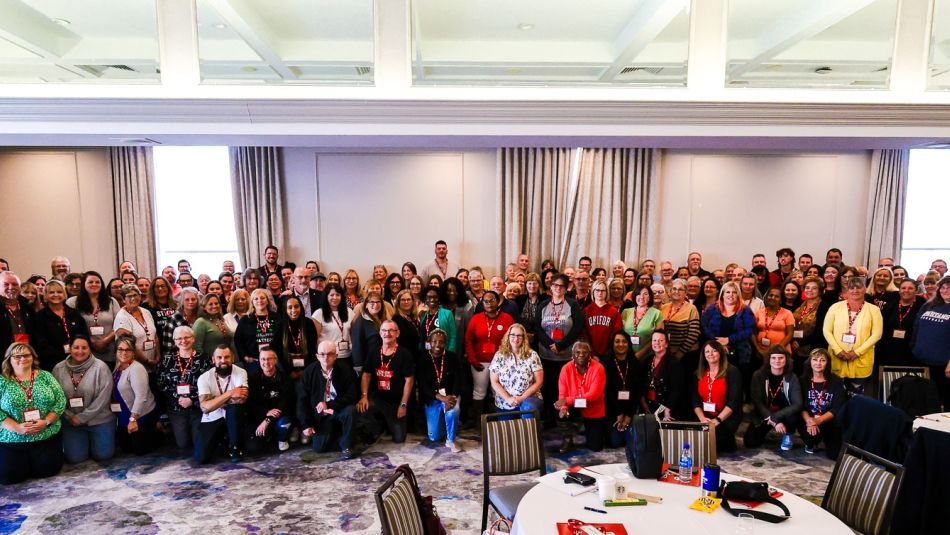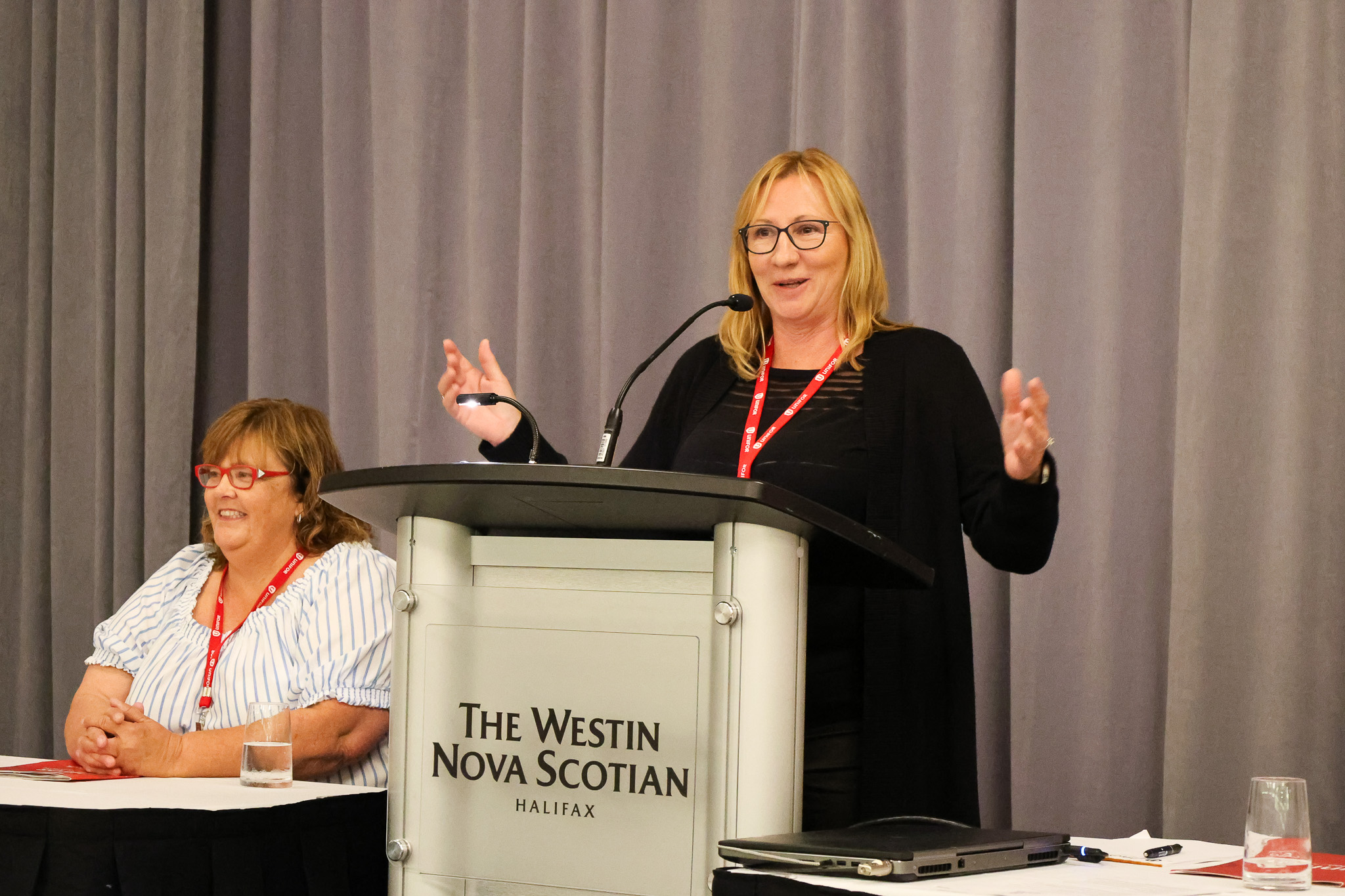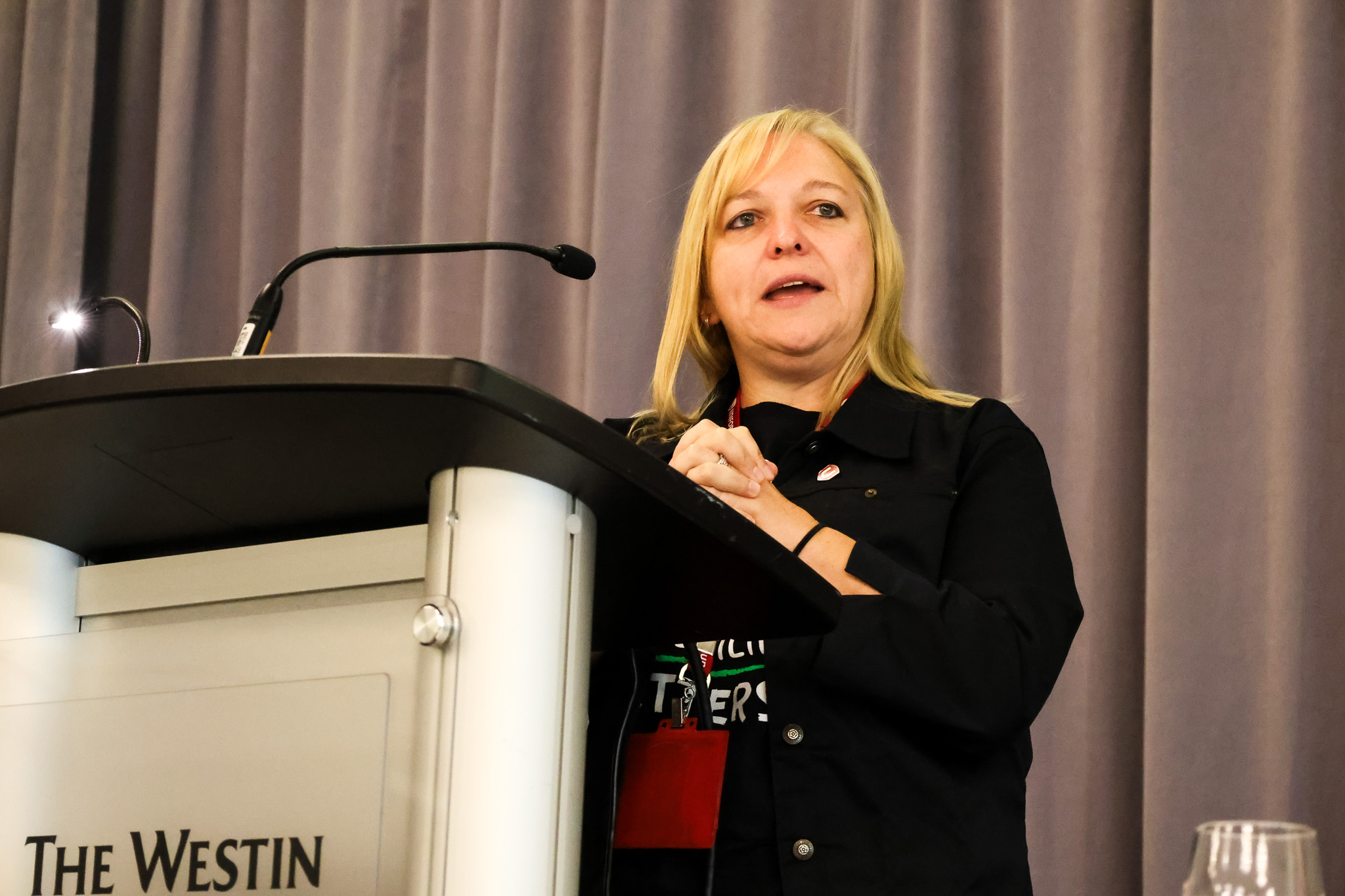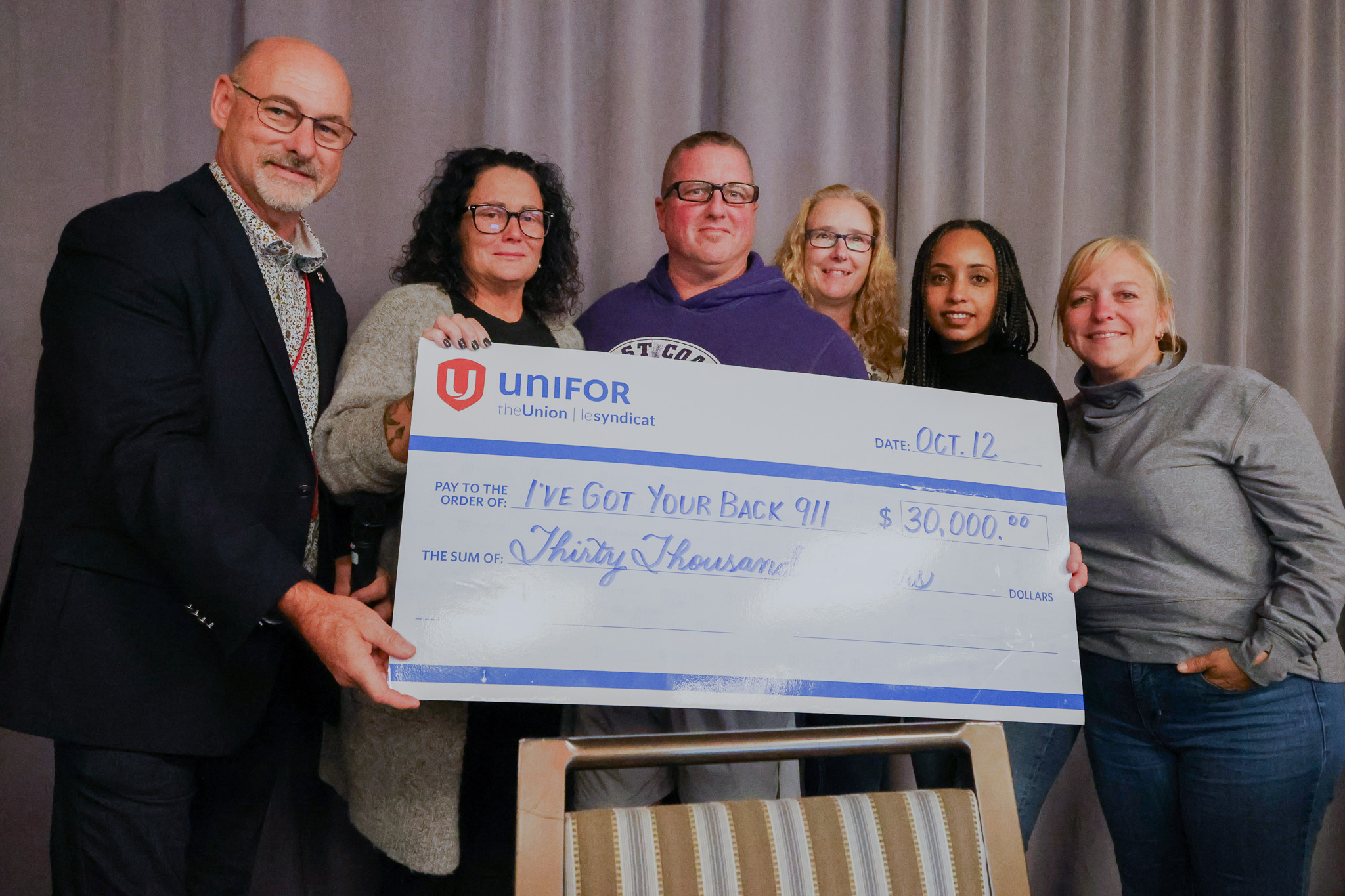
Share
The Unifor Health Care Conference took advantage of the seaside location in Halifax, N.S. to give health care workers some time to breathe, share experiences, and discuss common challenges.
More than 160 people gathered from health care units across Ontario and Nova Scotia representing nurses, paramedics, long-term care Continuing Care Assistants (CCAs) and Personal Support Workers (PSWs), medical laboratory technologists, administrative and maintenance, food services, sanitation workers and more.
Atlantic Regional Director Jennifer Murray welcomed everyone to the East Coast and highlighted some of the strong bargaining the union has done in Nova Scotia. Wearing her Unifor “End the Stigma, Mental Health Matters” t-shirt, Murray asked health care workers to take care of themselves, too.
“Employers have just as much responsibility to protect your mental wellness as they do your physical wellness and we know they fall short – sometimes, very short,” said Murray. “We are continuing to fight for better protections in your collective agreements and to improve legislation, so these higher standards become the new bare minimum.”
National President Lana Payne, making time amid intense bargaining with GM, shared her deep respect for health care workers, and discussed the union’s firm commitment to protecting public health care and pushing governments to listen to health care workers.
“You’ve all worked hard through what is a humanitarian crisis – you worked every single day, many of you for weeks at a time – and it was a horrific time for you,” said Payne.
“We know that often when we’ve had a crisis, it leads to another crisis. Health care workers have faced burn-out and of course levels of violence and harassment in the workplace that is unlike other sectors. We have to ask our governments what they are doing to strengthen public health care and to enforce the Canada Health Act.”
Payne reminded attendees that Canada remains a very wealthy country and that we should not be using privatization as the solution to our current challenges.
“Those of you who work in private long-term care homes know how this is a challenge every single day,” she said. “Wouldn’t we be much better off if we had a public system where we all had decent work and we were able to provide the kind of patient care that everyone deserves?”
Being supported in delivering care was the primary demand among the workers that wove through many conversations.
Paramedics at Ornge air ambulance in Ontario work in confined spaces, lifting heavy equipment that was designed for less acute, less complex medical needs, all while dealing with the complexity of air travel and working in remote areas in all kinds of weather.
“We’re facing a lot of the same issues as our brothers and sisters elsewhere in health care,” said Ornge paramedic Marhi Powell. “We need robust supports for mental health. We know what we sign up for as paramedics, but that doesn’t mean it isn’t still a struggle we need help with.”
Powell was thankful for advancements made through collective bargaining, like an increase in benefit support for mental health from $500 to $5,000.
“That is a significant improvement, as $500 doesn’t get you much in the way of support,” she said.
Sometimes, what is needed to support mental health, is a recognition of the stress, trauma, and hardship experienced by connecting with other health care workers and first responders.
This is what inspired Unifor members and active paramedics Shaun Taylor and Jill Foster to create a social media campaign nine years ago that has since developed into a worldwide movement to support first responders with post-traumatic stress disorder (PTSD).
“We began by sharing pictures of us holding a sign that said, ‘I’ve Got Your Back 911’ to show other first responders they weren’t alone,” said Taylor. “It started taking off and before we knew it, we were getting photos from all over the world – from police, paramedics, the Royal Canadian Mounted Police, military, you name it.”
Now, I’ve Got Your Back 911 has a retail storefront in London, Ont., that ships merchandise all over the world and welcomes people into a safe space.
“People understand that it’s a safe place they could come where they can talk about things,” he said. “Jill and I used to press shirts in the living room, and we’d get excited when we had about 10 packages we were going to send out in a week, and now, we ship out 1,000 to 1,500 packages a month from our retail store.”
The popularity of Taylor and Foster’s campaign shows the enormous need for a community that understands the toll it takes to work as a first responder.
But more than feel-good posts on social media channels, I’ve Got Your Back 911 also matches deserving first responders with trained therapy dogs, builds community and fundraises with an annual golf tournament, and advocate for legislation that better addresses the realities of work as a first responder.
“A big day for us, was April 5, 2016, which was when the First Responders Act was passed,” said Taylor, referencing the legislation in Ontario. “Before this, whenever there was a first responder with a diagnosis of PTSD, they had to prove what specific call they got it from. Which, if you ask any first responder, it’s ridiculous.
“Now, with this Act, it is presumed that the PTSD is caused by your work as a first responder. This has made accessing help and proper supports easier and that is a huge win for all of us.”
Unifor members were so moved by the story of I’ve Got Your Back 911 that councils, locals and the national union collaborated to make a $60,000 donation to the organization.
National Secretary-Treasurer Len Poirier presented Taylor and his wife, Tara, with the cheque to support more help and healing for hard-working first responders.
The three-day conference also included an interactive session on member-to-member organizing, a Q&A on the duty to accommodate, updates on the current challenges and issues in the sector from the union’s Research Department and Member Mobilization and Political Action Department.
And then, there was a moment of respite for health care worker attendees as they made their way to the Halifax waterfront and boarded The Harbour Queen for a tour of the harbour.
“A big part of the work we do in health care involves making sure we have the right laws, the right legislation, the right standards of care,” said Payne.
“All of that means that it’s not enough for us to just bargain collective agreements in health care – we’ve got to do a lot more.”
And that we will.





